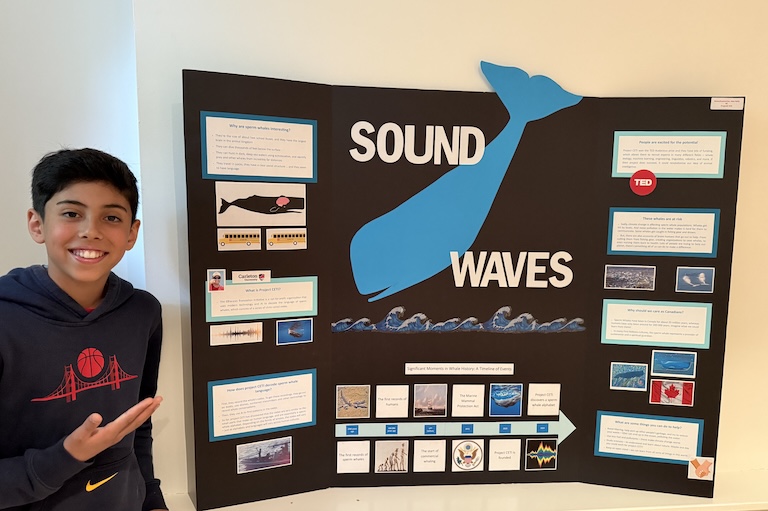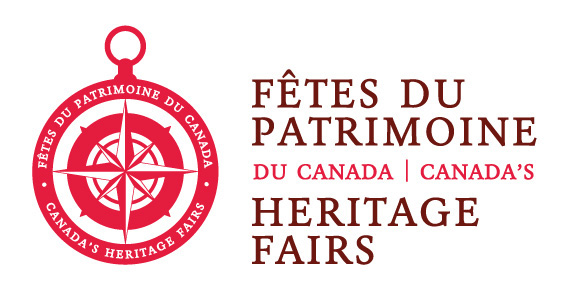Wes B.

Sound Waves
Wes B.
LeMarchant - St. Thomas Heritage Fair
Halifax, NS
After commercial whaling ended in the 19th century, whale lovers wanted to learn more about the species. Shane Gero (a professor at Carleton University), decided to team up with some of the leading scientists around the world. In 2020, with funding from the Ted audacious prize, project CETI was founded. Project CETI (the Cetacean Translation Initiative) is a not-for-profit organisation that uses modern technology and AI to decode the fascinating language of sperm whales, which consists of a series of clicks called codas. To do this, they record sperm whale conversations, and to get the recordings, they go out on boats, use drones, suctioned transmitters and other technology to record the whale’s codas. Later, they take these recordings and use special AI to find patterns in the codas. So far, project CETI has discovered a sperm whale alphabet! Like us humans, sperm whales make sounds (codas) which can be combined in unique ways to make words. Just like how sounds of the alphabet and language will vary from one part of the world to another in human cultures, with sperm whales the way codas are combined will vary from different groupings of whales. To make this even more exciting, over the next five years project CETI has set the impossible goal of talking back.
By researching this topic I learned that sperm whales are more similar to us than I realized, and we have so much more to learn about what they know and can do. All of us Canadians can learn from researchers like Shane Gero, and our First Nations people before him, about slowing down and listening to the world around us, so that we can better understand the species that make up Canada and our world.
What sources and evidence did you consult for your project? What different perspectives did they provide on your topic?
The sources I used for this project included news and magazine articles, podcasts and TED talks, the Project CETI website, live video footage of sperm whale sounds, indigenous art, historical websites, and conversations with my family.
What is the historical significance of your topic?
Sperm whales are culturally significant for Canadians since they’ve been navigating through Canadian waters for about 25 million years, far longer than humans have been on the planet, or in Canada. First Nations peoples refer to these whales as their ancestors, and they're right. Because of how long these whales have been here, they must have a lot of wisdom, and I would be really excited to hear what they'd have to say.
Why did you choose this topic?
Over dinner my mom told me about a podcast mentioning Project CETI, and what they were doing. I was amazed. I really like animals, and it’s not every day that you hear about an organization that’s using new technologies to decode whale language! And so I looked into it more, found why this was important for Canadians, thought this was very interesting, and decided to choose this topic for my heritage fair.

